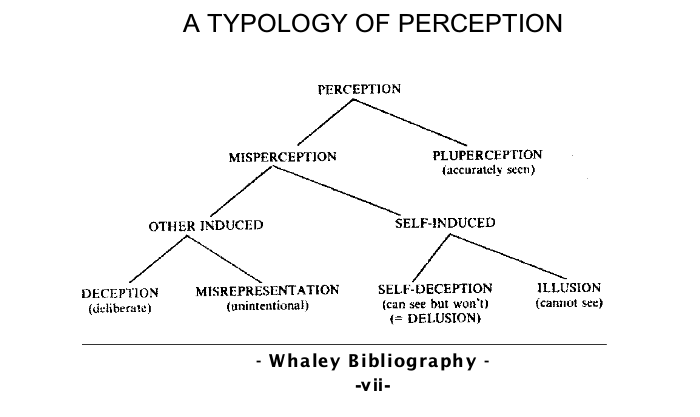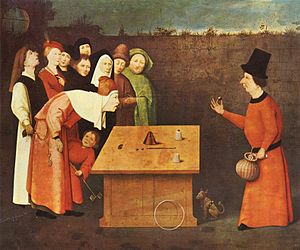User:Lucia Dossin
Reading Writing Research Methodologies
Notes on Reading
- Discipline, Control and the current state of Internet - notes
- Discipline, Control and the current state of Internet - common notes (group)
- Protocol – Introduction Chapter (Alexander Galloway)
- Empire - Chapter 1.2 Biopolitical Production (Antonio Negri and Michael Hardt)
Writing
- Work description in 300 words
- On Discipline Society / Society of Control
- Observations on Being an User
- Zizek / Martens / Oppenheimer
- Interview
- Essay on Method
Prototyping Networked Media
Assignments
- Assignment #1 Python & Turtle
- Assignment #3 Python Generated Sound Files - RAW DATA
- Assignment #3 Python Generated Image Seque3nce - RAW DATA
- Assignment #4 Working with text ...................
- Assignment #5 Roll Your Own Google
Modules
Prototyping Lens Based
Assignments
- Editing Scheme ...................
- Kinect
Thematic Seminars
Politics of Craft
Sound Narrative
Archive
Self-directed Research
Cookbook
Links
EMO entry
The Magician
The magician is a professional hired to entertain by performing tricks. From the perspective of the audience, the magician is someone who holds the power over the unkonwn. He (or she, even though there are much more male magicians than female ones) can control things that 'normal' people can't and is able to do things that we know are impossible. (S)He basically applies knowledge about Natural Sciences, Psychology - and more recently digital technologies - for entertainment purposes. But what exactly is entertaining about that?
One possibility is that the amusement comes from our attempt to find out the trick secret. But that's true to just a parcel of us: most people would actually be upset if they could unmask magicians' tricks. For the majority of the audience, the fun lies precisely in being cheated. That does not mean to say that being cheated is always fun. But a magician is someone who has our authorization to cheat us for entertainment. The cheating implies a specific setting, a range of situations and gestures and it usually does not damage nor hurt anyone involved in the performance or in the audience. It's safe and harmless.
According to Simon During, ‘there are layers and depth in the magic theater environment: curiosity, comedy, fear, sadism, amazement’. (Sina Najafi and Simon During, Cabinet Magazine, issue 26, Modern Enchantments: An Interview with Simon During, 2007)
Ancient magicians were involved in rituals that would go beyond the mere entertainment with balls and cards - they were said to cure diseases and perform other miraculous actions.
History
The first reportedly known magician, Dedi, lived in ancient Egypt (2700BC) and was supposedly able to resurrect animals after having their heads cut.
Since the beginning, magic has been associated with supernatural powers. In the Middle Ages, it has been associated with witchcraft. According to the Magicpedia, in the Renaissance a few important books were published on the subject.
'Natural Magic' (Magia natvralis libri viginti, written by John Baptista Porta in 1558) was a book on Natural Sciences and contained information on 'geology, optics, medicines, poisons, cooking, magnets and its properties, fires, gunpowders, invisible and clandestine writing'. (Wikipedia)
'The Discoverie of Witchcraft' (written in 1584 by Reginald Scot) not only disclosed trick secrets but also presented a strong position against the Catholic church for persecuting people and accusing them of being witches. It is an important landmark in the history of secular magic and its relationship with Science.
It was only in the 18th century that the magician as a gentleman-performer, like we know today started to be shaped. Magic had been performed in basically 3 formats: court magic, performed for royals and aristocrats, itinerant magic, performed in taverns or other places with an audience and street magic. The performers would in some cases charge tickets but the association of magicians and pickpockets was also common. Besides the association with the obscure, supernatural, Magic was also keen of dissociating itself from crime. One important figure in this transition is Isaac Fawkes, who performed ‘dressed as a gentleman in respectable, quase-theatrical spaces’. (Sina Najafi and Simon During, Cabinet Magazine, issue 26).
Magic also guards a close relationship with science & technology and with the mass media & the entertainment industry, specially cinema. The first films were projected during magic shows in Africa, Asia and Australia. In London, the first person to exhibit films was David Devant, a magician who worked for the Maskelynes. (Sina Najafi and Simon During, Cabinet Magazine, issue 26)
Around 1750, magicians started using electricity in the shows. ‘Magic becomes technologized, capitalized and hyped’, giving birth to modern show business. (Sina Najafi and Simon During, Cabinet Magazine, issue 26).
One of the most ancient performances is the 'Cup and Balls'. It has been performed for the last 2000 years. It is still considered such a relevant trick that many consider that mastering it is essential for someone to be called a magician.
Penn and Teller cups and balls
Abracadabra
The etymology of this word is uncertain but it may derive from Aramaic. Abracadabra is used as a magic word. The first mention of it was in a Medical book from century 3AD, where the word was displayed in the form of a triangle and was used as an amulet against malaria.
A - B - R - A - C - A - D - A - B - R - A
A - B - R - A - C - A - D - A - B - R
A - B - R - A - C - A - D - A - B
A - B - R - A - C - A - D - A
A - B - R - A - C - A - D
A - B - R - A - C - A
A - B - R - A - C
A - B - R - A
A - B - R
A - B
A
There are also connections between the word and the ability to write. It could have been used as a way to remember the alphabet, as 'it becomes more pronounceable and easier to remember by adding repetitive vowel "a" or "ra" sounds where there are none and adding an alliteration "bra" at the end'. (Wikipedia)
Magic Organizations
Worldwide there are many organizations that aim to keep the art of magic alive – and secret. The oldest one is The Society of American Magicians, founded in New York in 1902. A few years later (1905), the Magic Circle is founded in London. Both associations are still active. For a more complete list of this kind of organizations, check http://en.wikipedia.org/wiki/Category:Magic_organizations.
Magic and Strategy
Magic also performs an important role in military strategy. The Trojan Horse and the disapearing of Suez Canal by Jasper Maskelyne during WWII are examples.
Barton Whaley has studied the relationship between war and the tactics and methods of the magician. In his publication ‘Detecting Deception: A Bibliography of Counterdeception Across Time, Cultures and Discipline' (2006, Foreign Denial & Deception Committee Washington, DC), he clearly defines deception and dissects the differences between existing categories of deception.
“I define deception as any attempt—by words or actions—intended to distort another person's or group's perception of reality. And to keep matters simple, a lie is any statement made with the intent to deceive. These definitions avoid confusion with mere misinformation, incomplete information, or the truth value of statements. But they do permit us to include the authorized lies and deceptions practiced with our knowledge and approval by stage actors, magicians, and poker players. Moreover, this definition gets around the worrisome problem of self-deception. Instead, for our present purpose, the target of a deception is not oneself but always another's mind.”(Whaley, Detecting Deception, p.7)

‘Some Operational Uses of the Art of Deception’, written in 1954 by John Mulholland, a magician who worked for the CIA, was intended to teach the readers how ‘to perform in a variety of acts secretly and undetectably’. (Jonathan Allen, Cabinet Magazine, issue 26)
Magic and the Impossible
Teller (from Penn and Teller) defined Magic as 'the theatrical linking of a cause with an effect that has no basis in physical reality, but that — in our hearts — ought to.’
Simon During, in issue 26 from Cabinet Magazine, states that ‘one of the reasons why we feel ambivalent about magic is that it can remind us of a period of our life where we found it harder to separate the real from the amazing illusion’.
Tricks might change according to technology and culture, but the principles of stage magic are old and do not change that much..
Graduation
Bibliography
Building up, checking...
Magic, illusion, deception
- Words made Flesh, Floriam Cramer
- Virtual Art: from illusion to immersion, Oliver Grau
- Detecting Deception: A Bibliography of Counterdeception across Time, Cultures and Disciplines, Barton Stewart Whaley
Cute capitalism
- A era do capitalismo fofinho e seus dissidentes, Giselle Beiguelman - http://www.select.art.br/article/reportagens_e_artigos/a-era-do-capitalismo-fofinho-e-seus-dissidentes
- Radical Negativity - An interdisciplinary conference interrogating productive possibilities for negative states of being, Tiffany Page - http://www.academia.edu/5365723/Radical_Negativity_An_interdisciplinary_conference_interrogating_productive_possibilities_for_negative_states_of_being
- Smile or Die: How Positive Thinking Fooled America and the World, Barbara Ehrenreich

